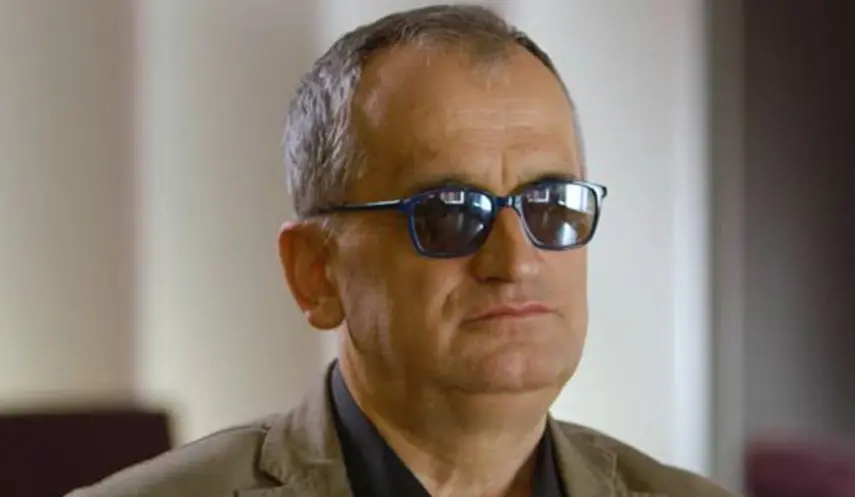MASSACRE IN THE SREBRENICA SERBIAN VILLAGE OF PODRAVANJE
BiH - Middle Podrinje - crimes against Serbs /10/
07/11/2025
09:20

SREBRENICA, JULY 11 /SRNA/ - Milojka Bibić lost her brothers Rade and Milovan, her father Miloš, and her mother Dikosava Marinković in the attack by Muslim forces on the village of Podravanje near Srebrenica at the end of September 33 years ago.
"Muslim soldiers surrounded and attacked Podravanje from all sides, and then, with indescribable noise and shouts of `Allahu Akbar!` they stormed the village and killed everyone they reached," Milojka recalls the fateful September 24, 1992, when she unsuccessfully tried to pull her wounded brothers and parents out of the surrounding area.
According to her, Muslim soldiers killed everyone - women, children, old people, as if they knew they would never be held accountable.
"But there is also God's punishment, if the Hague Tribunal and the BiH judiciary do not want to prosecute them," she said.
She pointed out that the attitude of the international and BiH judiciary is shameful, as they only try Serbs, while for her family, who were killed in their village simply because they were Serbs, no one is held accountable and there is no justice, even 33 years after the crime and three decades after the end of the war.
"There is nothing of this state with a judiciary like this, where criminals live freely because they are protected by prosecutors who do not want to press charges, hide documentation, obstruct processes and ultimately inform the public that there is no evidence to press charges, where judges dispense justice according to different standards and obstruct investigations," said Bibić.
She says the names of the victims are known and it is the prosecutors' task to collect evidence and file an indictment, because the names of the murderers are also known, and there are witnesses, which makes the prosecutors' job easier.
Bibić noted that prosecutors obstruct and belittle Serb victims, their families and the entire Serb people in every way, they are not accountable to anyone for their inaction and are one-sided.
Professor Miloš Mitrović, who is from Podravanje but now lives in Bratunac, previously told SRNA that on that fateful September day in 1992, his mother Ruža, who was 65 years old, and his uncle Mihajlo, who was later found beheaded, were killed.
His uncle Drago Mitrović survived the Ustasha massacre in World War II and lived without the power of speech and trauma.
"He was captured again 33 years ago and slaughtered by the descendants of those who slaughtered him in 1941. This is a unique case of one man experiencing two slaughters in two wars in his 67 years," Mitrović said.
He pointed out that some Serbs were hiding nearby and heard the butcher tell him "you survived 1941, and now you certainly won't" and cut off his head, which means he knew him personally.
Cvijetin Šarac previously said that on that tragic day, his 30-year-old son Mitar was killed not far from home, and his uncle Veselin was captured and survived horrific torture and died shortly after the exchange from the consequences of the beating.
While retreating, he hid in a bush and watched the killing of civilians, and after three days he escaped to free territory and came to Milići.
Dragutin Šarac previously told SRNA that his brother Veselin told him that he was personally beaten in the camp by Naser Orić, whom he knew because he went to school with his son.
The survivors concluded that the Muslim neighbors from neighboring villages, who knew them and called them out of their houses by name, participated in the attack on Podravanje.
All 120 houses and other commercial and auxiliary facilities in the village were burned, and all Serb property was previously looted.
In Podravanje near Srebrenica, Muslim forces killed 32 Serbs on September 24, 1992, and during the war, 60 Serb soldiers and civilians from this village.
Among those killed 33 years ago in Podravanje were eight members of the Perendić family, seven each from Marinkovićs and Šaracs, and four each from Nikolićs and Jovanovićs. More than half of those killed in Podravanje were civilians - women, the elderly, children, immobile and blind people, according to the book "Testimony about the Unpunished Crime against Serbs in Podrinje".
Strong Muslim forces from Srebrenica and Žepa surrounded the scattered mountain village of Podravanje and its hamlets 33 years ago, cut off the only road communication to Milići and launched an artillery and infantry attack.
The armed men resisted and the fighting lasted all day. 32 locals were killed, and after a hand-to-hand fight in the evening hours, a small number of survivors, including some lightly wounded, broke through and managed to escape the encirclement alive.
A group of Serb fighters from this village were surrounded and while they were in contact with the relevant command, they requested that they be shot and killed by the artillery of the Army of Republika Srpska so that they would not fall into the hands of the enemy alive.
In Podravanje, Jasenova and their sparsely populated hamlets, almost all the residents who deceased after the war died of some type of cancer. The locals assume that this is a consequence of NATO and UNPROFOR operations in this area during the war and some type of contamination of the area. /to be continued/







